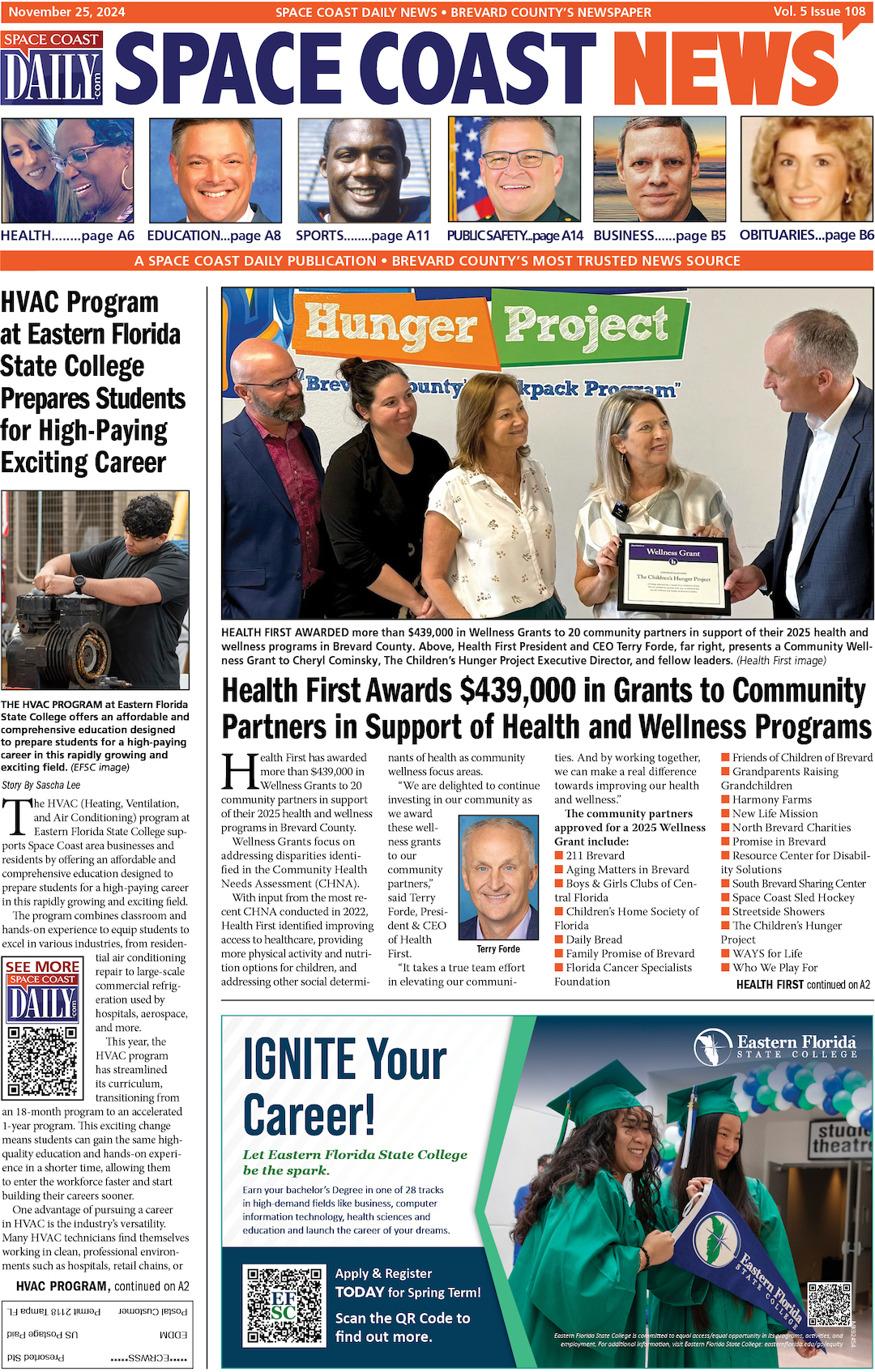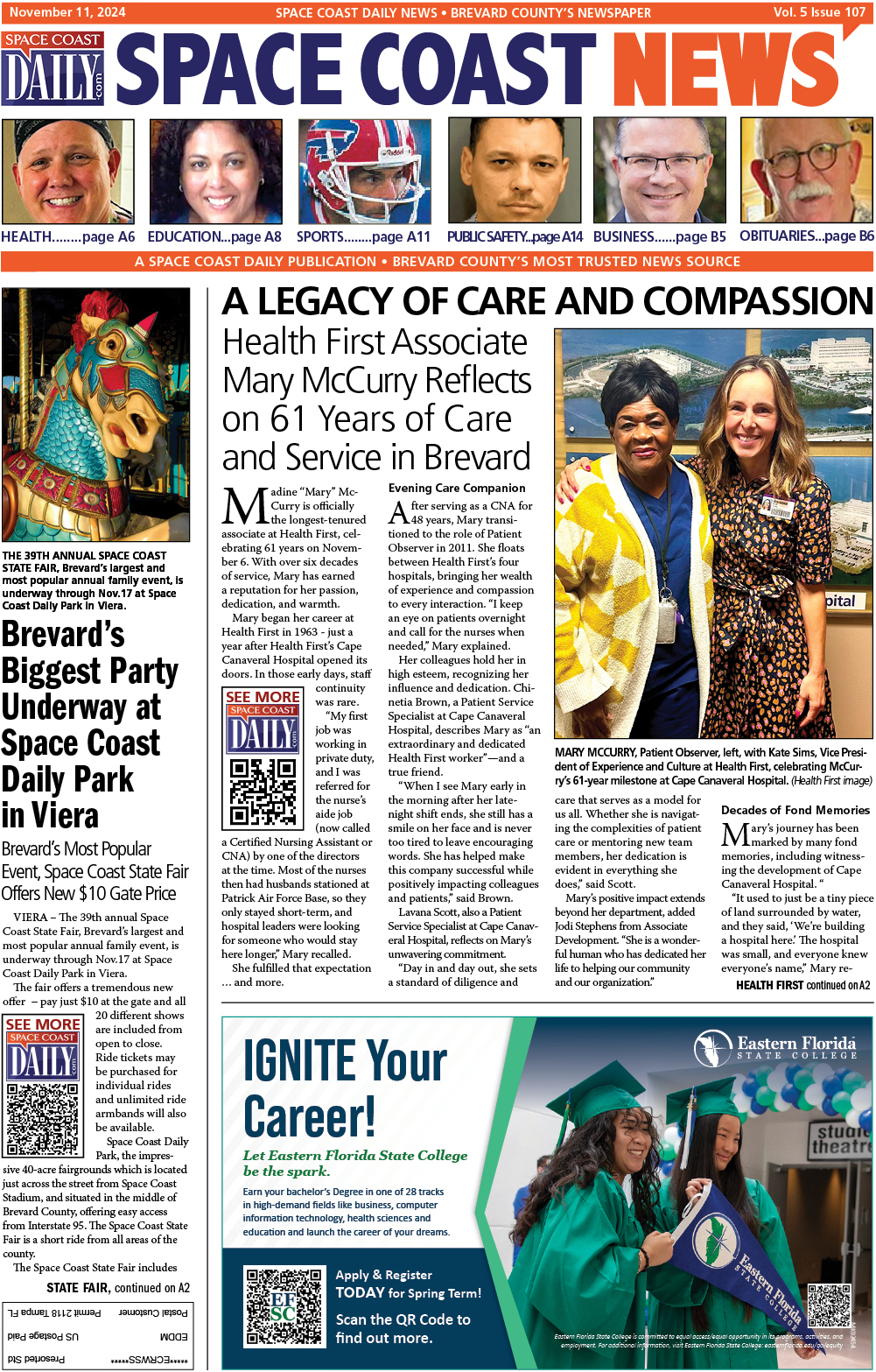WATCH: Brevard Public Schools Discusses Critical Race Theory at School Board Meeting
By Space Coast Daily // June 22, 2021
ABOVE VIDEO: Brevard Public Schools discusses concerns raised about Critical Race Theory (CRT) and a recent Mental Health Conference that discussed Adverse Childhood Experiences (ACE).
BREVARD COUNTY, FLORIDA – The School Board for Brevard Public Schools addressed the hot topic of ‘Critical Race Theory’ surrounding education.
Considered as an academic movement of civil-rights scholars and activists in the United States, Critical Race Theory examines the law as it intersects with issues of race and to challenge mainstream liberal approaches to what is defined as racial justice.
Critical race theory examines social, cultural and legal issues as they relate to race and racism.
Below is the transcript of the discussion:
MISTY BELFORD: “I didn’t want to miss what McDougal mentioned earlier the mental health conference that took place. Well, our mental yes, mental wellness. Thank you for the correction. And I did have some did some constituents that reached out to me with some concerns about some of the information that was presented during that conference. So I spoke with Dr. Mullins, wanted to make sure that we had and had looked at things closely. Dr. Mullins, do you mind just kind of giving us an an update on that?
I just want to make sure that everybody’s on the same page on it.
DR. MULLINS: Sure. So last week, our public schools hosted a virtual conference for mental health and wellness for employees to participate in and take advantage of a host of different speakers that were provided around the country.
One of the concerns that was brought to our attention was a presentation that included an explicit reference to critical race theory with but with it was presented in context of one of 10 stressors that impact students.
And I’m not going to suggest I’m an expert in all of these areas, but the. The frame or the context of the presentation was looking at how students face adverse childhood experiences otherwise referenced to as ACE. Particularly from a trauma informed perspective and equipping and helping our educators understand and be responsive to experiences that our kids have. Hopefully not when they’re with us, but what what their environment is when they’re not with us, but certainly become a part of who they are when they come to us and our schools.
And the stressor that was particularly referenced was one titled Racism, Discrimination and Inequity as a stressor that our students experience and helping our educators understand. What are some of the questions that we they need to be asking and and working with students? Things about what our identity based stressors that the student is facing. What is the student’s perspective as they talk with and support the student through whatever they may be bringing, what strengths to the students bring and and and so on?
So that was within that specific concern was referenced when it when it came to me, I immediately met with staff and looked carefully at the materials to ensure that they were appropriate and aligned with our commitment, or for as long as I’ve been superintendent in supporting the individual needs and the experiences that our kids come to us with. And some of them are. Quite frankly, tragic everything from food insecurities to homelessness to even worse, even more devastating circumstances in such situations.
So actually viewed this presentation and another one from another presenter from best practices for social justice in schools and looked at the content and the context of the presentations and their appropriateness.
And if, in fact, they aligned with the work that we’ve been committed to doing as a as a school district for some time now. So. Is that the the reference that one of the speakers made about curriculum? Certainly we always welcome parents to bring concerns about what is in our classrooms to the district’s attention. And we will give equal attention and review and evaluation to any concerns that that may be referenced. And we’re certainly aware of and evaluating the recent state school board rule ruling coming to districts coming to the state and making sure that we are evaluating that thoroughly as well.
So, Miss Belford, did that cover what you’re what you were hoping or interested in?
MISTY BELFORD: It did, thank you. I think you know, it’s important to take things in context, right? So sometimes when we look at something, we make an assumptions about what it is without the context around it. I, too, had the opportunity to go and look at those two presentations and I think, you know, we have we have not shied away as as a board or as a district from having difficult, sometimes uncomfortable conversations about what we need to do to support our students to success.
And I think this is that presentation was a great example of us understanding where our students are when they’re coming to us and the ones with which they are engaging in their educational experience. And I think we’ve made a commitment that we’re we’re going to recognize those things. We’re going to take the time to look at those things. And whether it’s our African-American students, are Hispanic students, are English language learners, our special education students. Those are the areas where we have very clearly identified through data.
And I know the board is very aware of that data, that we have some gaps. And it was was referenced as well in our accreditation, you know, validating that we have work to do in those areas. So I just want to make sure that we’re all on the same page since we can’t talk outside of of the public setting, in case you all had any concerns as well or had anyone reach out to you just to make.













